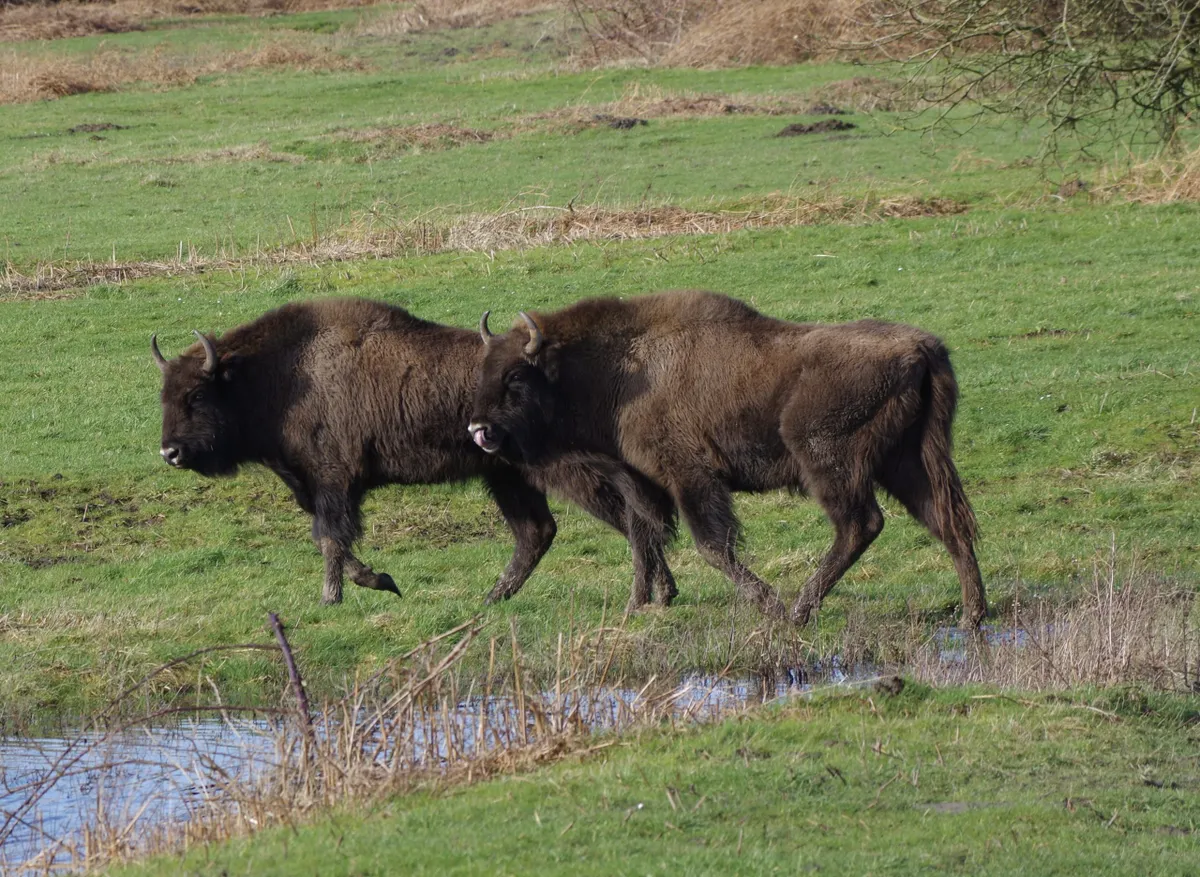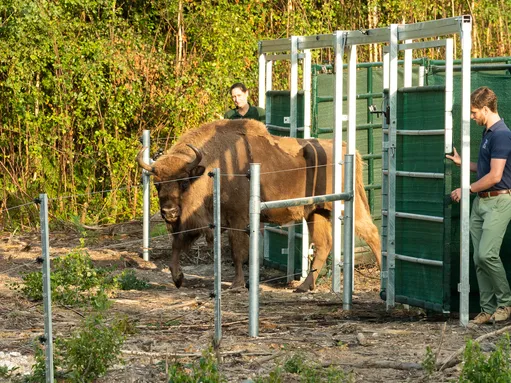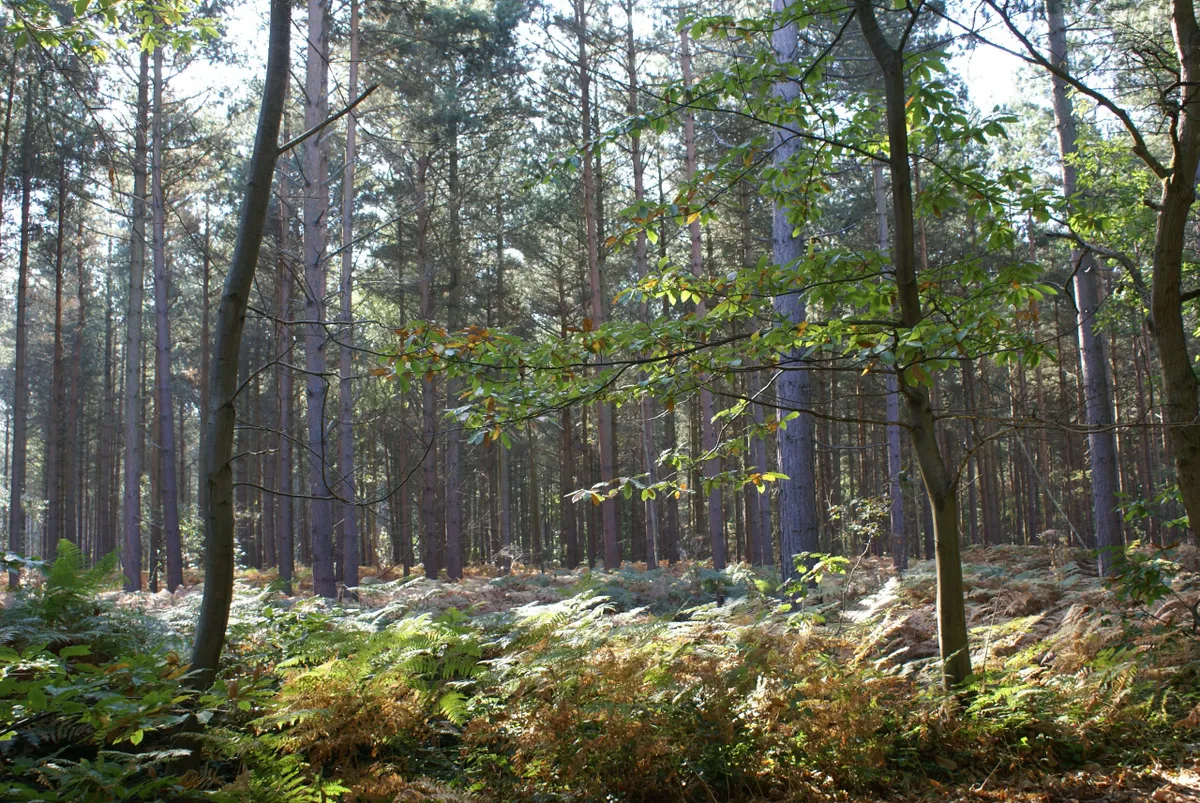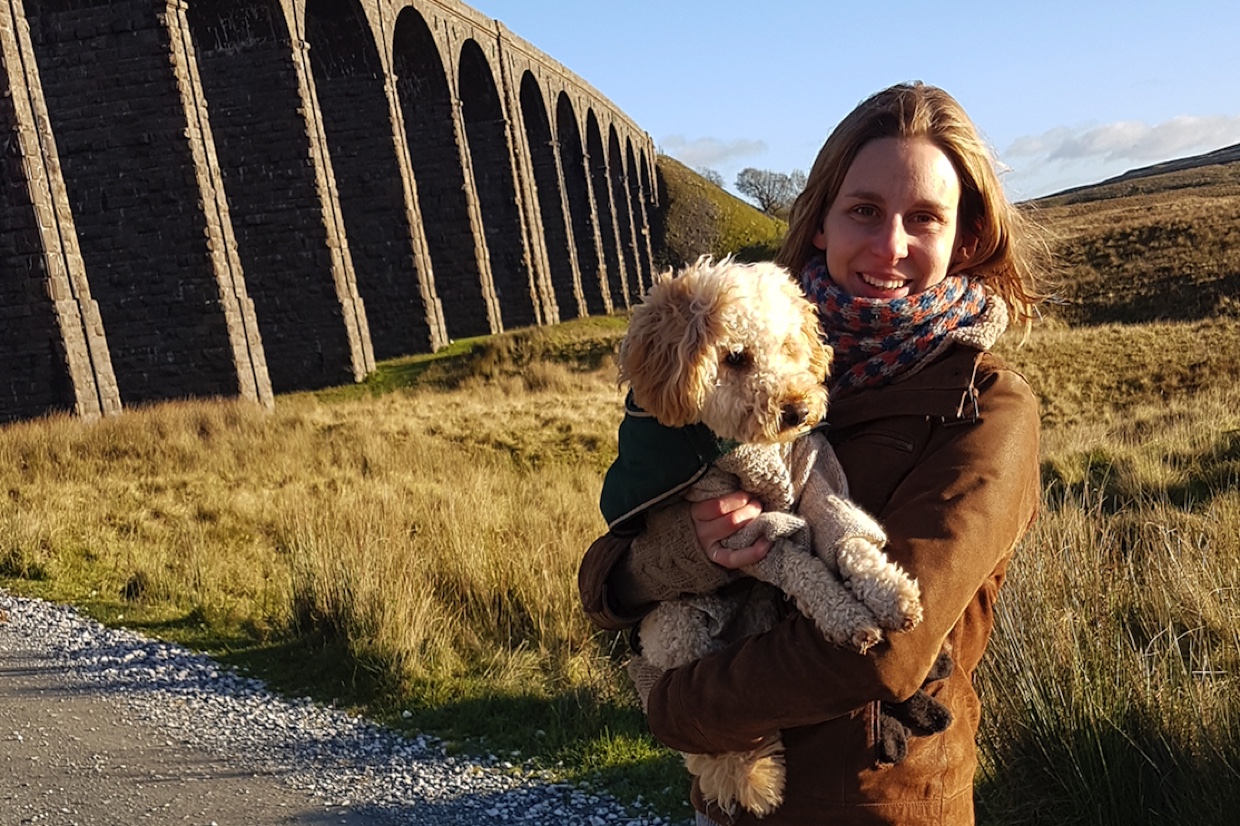Just before 7am today, a small herd of European bison was released into Blean woods near Canterbury, Kent. It's the first time in 6,000 years that this ancient species has roamed in Britain.
It's fitting that their release should coincide with the hottest day of the year. These long-lost mega-mammals are ‘ecosystem engineers’, which means they will restore life to the woodland through their natural behaviours and offer a nature-based solution to tackle the climate and biodiversity crisis.
Led by Kent Wildlife Trust and the Wildwood Trust, this pioneering, five-year reintroduction project forms part of a broader wilding project, which has been made possible by a £1m award from the People’s Postcode Lottery Dream Fund. The aim is to restore the natural ecosystem in the area’s renowned ancient woodlands and store carbon.

The bison will create a more climate-resilient landscape, and will help to naturally regenerate the West Blean woods through the unique way they graze, creating ‘sand baths’, and felling trees by rubbing against them and eating the bark. This behaviour encourages more light to the woodland floor and improves the habitat for a range of other species.
“The restoration of naturally functioning ecosystems is a vital and inexpensive tool in tackling the climate crisis," says Evan Bowen-Jones, chief executive officer at Kent Wildlife Trust. “We want Wilder Blean to mark the beginning of a new era for conservation in the UK. We need to revolutionise the way we restore natural landscapes, relying less on human intervention and more on natural engineers like bison, boar and beaver.

“Equally important is that the Wilder Blean project will connect people with nature in a way that hasn't been possible before in the UK, because we haven't had big wild animals in our landscapes. We hope that those who visit will be inspired by what we are doing and become champions for nature too.”
The bison will soon be joined by other grazing animals, including Exmoor ponies, Iron Age pigs and Longhorn cattle, whose natural behaviours compliment the bison and will help to manage the landscape without the need for human intervention. Their impacts will be closely monitored in a long-term survey programme led by Kent Wildlife Trust.

The European bison is the continent's largest land mammal, weighing as much as a tonne. There have already been successful releases in other European countries, including Poland, Romania and the Netherlands, where people are reportedly able to walk through areas where bison are present without problems if a respectful distance is kept.
“I have wanted to see bison in the woodlands of Kent for over ten years, and after three years of determined and focused work, we have been able to make it happen," says Paul Whitfield, general director of the Wildwood Trust. "This is a huge step forward for species recovery in the UK and will open the door for many more important wilding projects in the future.”




